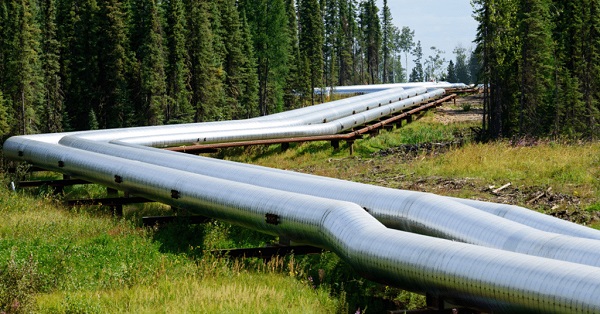Dan McTeague
The Carbon Tax is part of a bigger plan to change the way you live

From Canadians for Affordable Energy
 Written By Dan McTeague
Written By Dan McTeague
On April 1, the carbon tax is going to rise from $65 per tonne to $80 per tonne, and it seems Canadians are noticing this jump more than those of the past few years.
Back in 2019, the Trudeau government announced its 566% carbon tax hike, starting at $15 per tonne and increasing yearly until 2030, when it would reach a staggering $170 per tonne. It received some attention at the time, but there was not a great deal of pushback. Presumably the numbers were too abstract to catch people’s attention and 2030 seemed a long way off.
But today things are different. It helps that Conservative Party leader Pierre Poilievre has been campaigning aggressively against the tax, with rallies and petitions to ‘Axe the Tax.’
Even Liberal premiers, such as Andrew Furey of Newfoundland and Labrador, have been pleading with Justin Trudeau to hit pause on the increase. In fact, a total of seven premiers in the country have spoken out against the tax, asking for a delay in its increase.
That’s because they recognize the tax is hurting Canadians. The cost of everything has gone up. It’s gotten so tough for businesses that some restaurants have begun adding a ‘carbon tax’ line item to the final bill. And if Canadians think it is bad now, wait until 2030 when the carbon tax will more than double its current rate.
The other reason people are more aware of the increase is because, well, the tax is working. It’s doing what it was designed to do, though maybe not in the way you might think. The goal is not simply to reduce emissions — in fact emissions have gone up. The goal is actually more nefarious than that. Let me explain.
The carbon tax is one of the pillars of the United Nations, World Economic Forum (WEF) Net-Zero-by 2050 agenda. In order to achieve their objective, they need all of us to fundamentally alter the way we live our daily lives. They want us to drive less, fly less, eat less meat (and more bugs). The carbon tax is a punitive means of achieving this.
In fact, the Trudeau government’s own Healthy Climate, Healthy Economy plan articulates the logic of the tax quite well when it says, “The principle is straightforward: a carbon price establishes how much businesses and households need to pay for their pollution. The higher the price, the greater the incentive to pollute less, conserve energy and invest in low-carbon solutions.”
It’s worth noting that they’re using a pretty loose definition of ‘pollution’ here, because we all know that carbon dioxide is not a pollutant — it is a gas which makes life on earth possible.
Even so, their intention is clearly stated — they figure that, if the price of fuelling up your car, going on a vacation and heating your home gets high enough, you will have to drastically alter the way you live your day-to-day life.
You will stop flying, cut back on driving, use fewer appliances. And really, you’ll just get used to having less money, until — following the slippery slope to its conclusion — you will “own nothing and be happy,” in the words of that infamous WEF tweet.
Which is to say, the carbon tax is a punishment for participating in normal economic activity, for living a regular life. Of course, for the time being you can catch a break if you live in Atlantic Canada and heat your home with oil, but if you live in the prairies and heat your home with natural gas, sorry, but you’re out of luck. You aren’t in a Liberal riding, after all!
And even then, the Liberals and their activist friends are banking on Canadians reducing their carbon emissions in order to achieve their Net Zero 2050 target.
So good for Pierre Poilievre, Andrew Furey and the other premiers for pushing back on the carbon tax.
But let’s not forget that, as noxious as it is, it’s only one small part of the Liberals’ Net Zero agenda.
Eliminating the carbon tax is merely cutting off one head of the hydra. If Canada’s political leaders are really concerned with affordability, then they need to target the monster’s heart.
It’s time that we not only axe the tax, but we need to scrap Net Zero.
Dan McTeague is President of Canadians for Affordable Energy
Dan McTeague
Will this deal actually build a pipeline in Canada?

By Dan McTeague
Will Carney’s new pipeline deal actually help get a pipeline built in Canada? As we said before, the devil is in the details.
While the establishment and mainstream media cheer on the new pipeline agreement, there are specific details you need to be aware of.
Dan McTeague explains in his latest video.
Business
Liberal’s green spending putting Canada on a road to ruin

Once upon a time, Canadians were known for our prudence and good sense to such an extent that even our Liberal Party wore the mantle of fiscal responsibility.
Whatever else you might want to say about the party in the era of Jean Chrétien and Paul Martin, it recognized the country’s dire financial situation — back when The Wall Street Journal was referring to Canada as “an honorary member of the Third World” — as a national crisis.
And we (remember, I proudly served as Member of Parliament in that party for 18 years) made many hard decisions with an eye towards cutting spending, paying down the debt, and getting the country back on its feet.
Thankfully we succeeded.
Unfortunately, since then the party has been hijacked by a group of reckless leftwing fanatics — Justin Trudeau and his lackeys — who have spent the past several years feeding what we built into the woodchipper.
Mark Carney’s finally released budget is the perfect illustration of that.
The budget is a 400 page monument to deficit delusion that raises spending to $644.4 billion over five years — including $141.4 billion in new spending — while revenues limp to $583.3 billion, yielding a record (non-pandemic) $78.3 billion shortfall, an increase of 116% from last year.
This isn’t policy; it’s plunder. Interest payments alone devour $55.6 billion this year, projected to hit $76.1 billion by 2029-30 — more than the entire defence budget and rising faster than healthcare transfers.
We can’t discount the possibility that this will lead to a downgrade of our credit rating, which will significantly increase the cost of borrowing and of doing business more generally.
Numbers this big start to feel very abstract. But think of it this way: that is your money they’re spending. Ottawa’s wealth is made up entirely of our tax dollars. We’ve entrusted that money to them with the understanding that they will use it responsibly. In the decade these Liberals have been in power, they have betrayed that trust.
They’ve pursued policies which have made life in Canada increasingly unaffordable. For example, at the time of writing it takes 141 Canadian pennies (up from 139 a few days ago) to buy one U.S. dollar, in which all of our commodities are priced. Well, that’s .25 cents per litre of gasoline. Imagine what that’s going to do to the price of heating, of groceries, of the various other commodities which we consume.
And this budget demonstrates that the Carney era will be more of the same.
Of course, the Elbows Up crowd are saying the opposite — that this shows how fiscally responsible Mark Carney is, unlike his predecessor. (Never mind that they also publicly supported everything that Trudeau did when he was in government.) They claim that Carney shows that he’s more open to oil and gas than Trudeau was.
Don’t believe it.
The oil and gas sector does get a half-hearted nod in the budget with, for instance, a conditional pathway to repeal the emissions cap. But those conditions are important. Repeal is tied to the effectiveness of Carney’s beloved industrial carbon tax. If that newly super-charged carbon tax, which continues to make our lives more expensive, leads to government-set emissions reductions benchmarks being met, then Ottawa might — might — scrap the emissions.
Meanwhile, the budget doubles down on the Trudeau government’s methane emissions regulations. It merely loosens the provisions of the outrageous Bill C-59, an act which should have been scrapped in its entirety. And it leaves in place the Trudeaupian “green” super structure, which has resource sector investment, and any business that can manage it, fleeing to the U.S.
In these perilous times, with Canada teetering on the brink of recession, a responsible government would be cutting spending and getting out of the way of our most productive sectors, especially oil and gas — the backbone of our economy.
It would be repealing the BC tanker ban and Bill C-69, the “no more pipelines act,” so that our natural resources could better generate revenue on the international market and bring down energy rates at home.
It would quit wasting millions on Electric Vehicle charging stations; mandating that all Canadians buy EVs, even with their elevated cost; and pressuring automakers to manufacture Electric Vehicles, regardless of demand, and even as they keep closing up shop and heading south.
But in this budget the Liberals are going the opposite direction. Spend more. Tax more. Leave the basic Net-Zero framework in place. Rearrange the deck chairs on the Titanic.
They’re gambling tomorrow’s prosperity on yesterday’s green dogma, And every grocery run, every gas fill-up, every mortgage payment will serve as a daily reminder that we are the ones footing the bill.
Once upon a time, the Liberals knew better. We made the hard decisions and got the country back on its feet. Nowadays, not so much.
-

 International1 day ago
International1 day agoBondi Beach Shows Why Self-Defense Is a Vital Right
-

 Business2 days ago
Business2 days agoOttawa Pretends To Pivot But Keeps Spending Like Trudeau
-

 Crime1 day ago
Crime1 day agoBondi Beach Survivor Says Cops Prevented Her From Fighting Back Against Terrorists
-

 Automotive1 day ago
Automotive1 day agoFord’s EV Fiasco Fallout Hits Hard
-

 Energy2 days ago
Energy2 days agoLiberals Twisted Themselves Into Pretzels Over Their Own Pipeline MOU
-

 Censorship Industrial Complex2 days ago
Censorship Industrial Complex2 days agoHow Wikipedia Got Captured: Leftist Editors & Foreign Influence On Internet’s Biggest Source of Info
-

 Crime1 day ago
Crime1 day agoThe Uncomfortable Demographics of Islamist Bloodshed—and Why “Islamophobia” Deflection Increases the Threat
-

 Frontier Centre for Public Policy15 hours ago
Frontier Centre for Public Policy15 hours agoCanada Lets Child-Porn Offenders Off Easy While Targeting Bible Believers








